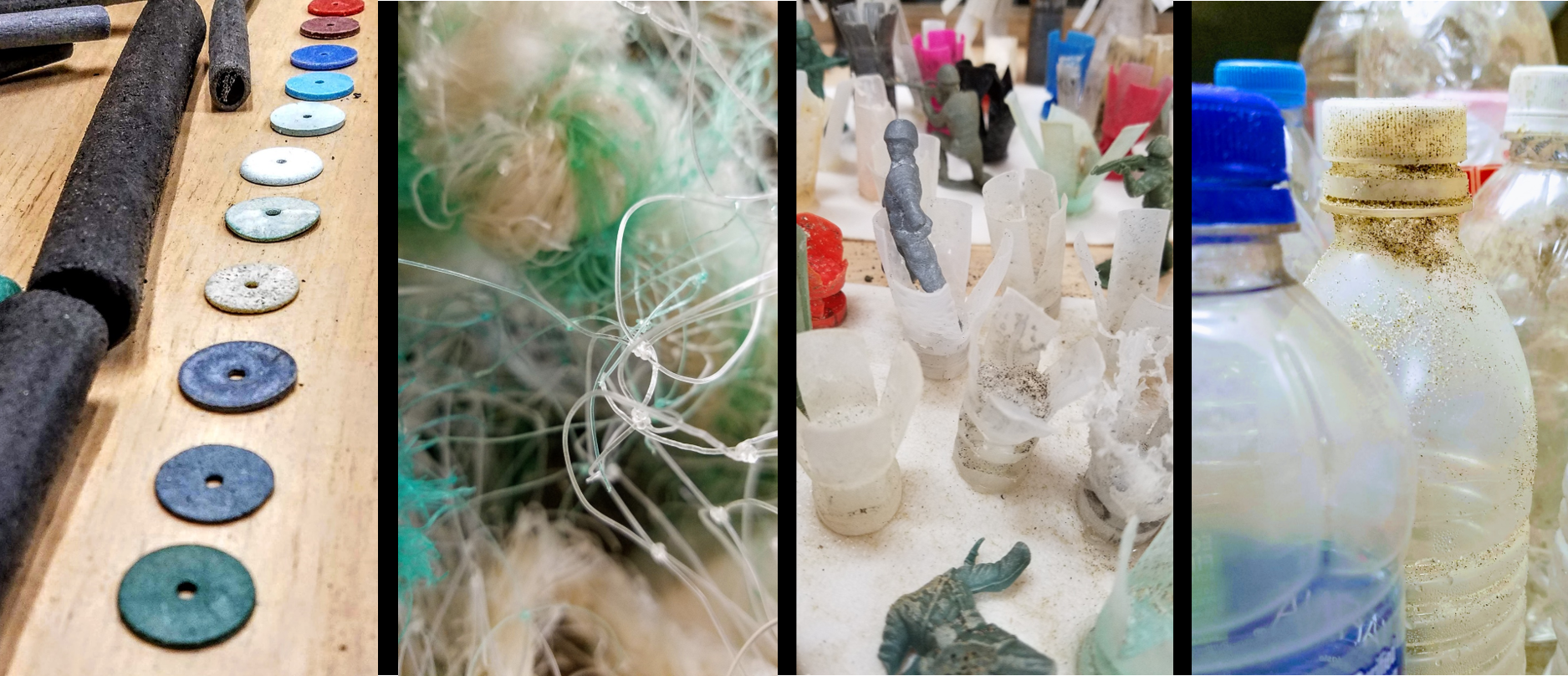- Home
- Borrow & Request
- Collections
- Instructors & Researchers
- Help
- Meet & Study Here
- Tech & Print
- About

Lighters Left Behind: Cigarette litter (Including butts, cellophane cigarette package wrap, cartons, lighters, and plastic cigar filters) are the most common debris items found worldwide on beaches and in public parks.
Drink Cups, Beverage Straws, Stirrers, and Lid Plugs: Made and sold everywhere. These items end up in the marine environment. Look closely at the high tide strand line and near storm drains. They’ll be there. Not recyclable on the scale required to clean them up.
Shotgun Waddings: These plastic wads hold steel birdshot, which is used for hunting waterfowl. Once expelled, they are impossible to retrieve and are becoming common finds along bays, inland beaches and the ocean shore.
Antifouling Aquaculture Plastics: These plastic tubes and discs are essential to preventing biofouling in shellfish farms. Tubes ride up and down mooring ropes. Also included here for contrast are hagfish trap end fragments. A very common debris item on Oregon beaches.
Bottled Water and Bottled Beverages: In many parts of the world, tap water is undrinkable in quantity. For most in the Pacific Northwest, bottled water is a convenience rather than a necessity. Alternatives exist, willpower permitting. Most common on the Oregon beaches are domestically produced branded bottles.
Ropes/Nets: Ropes, nets and fragments of each wash up year-round in Oregon. It can be difficult to trace the source point of ropes, with BlueSteel crab pot rope being the local exception.